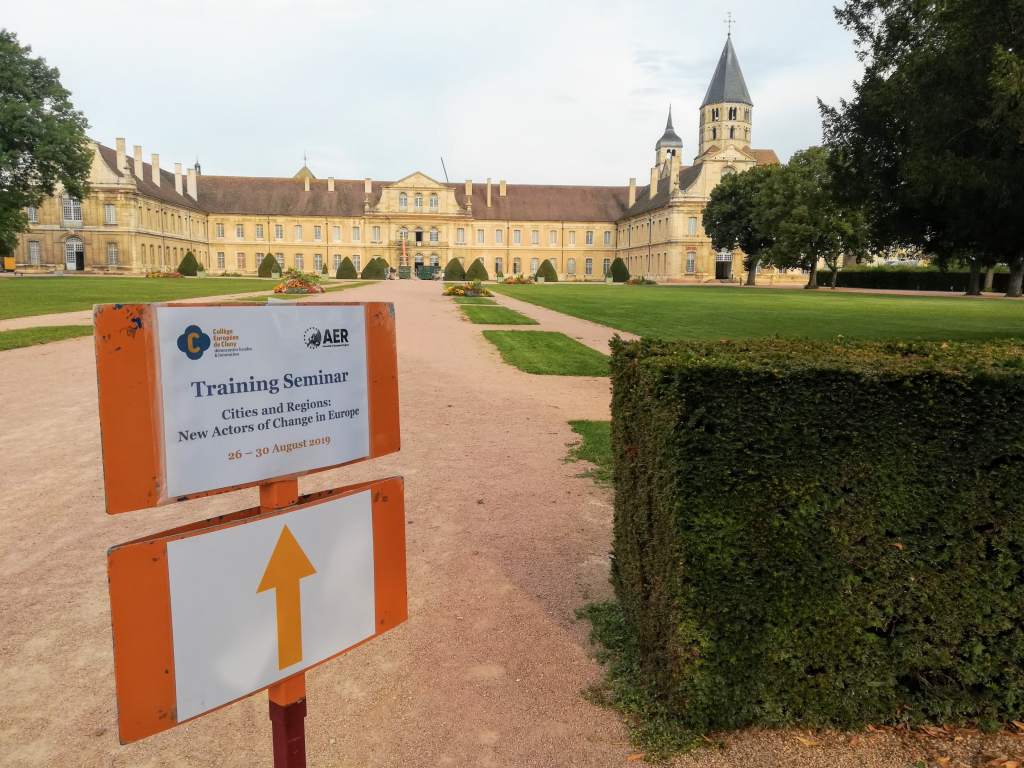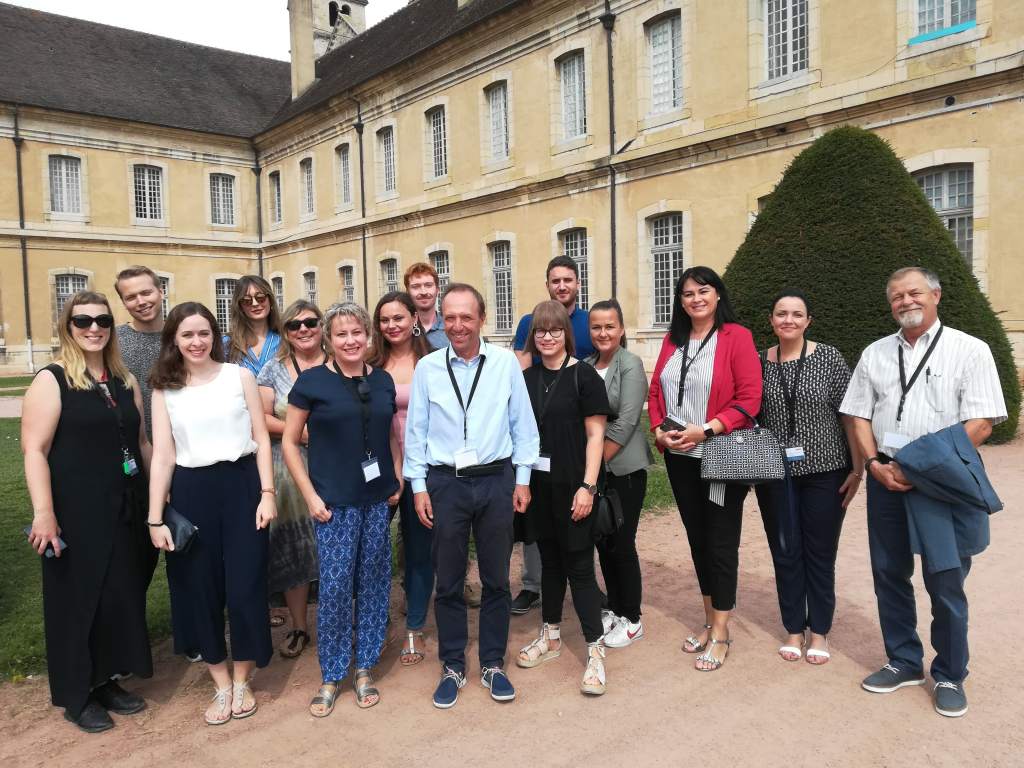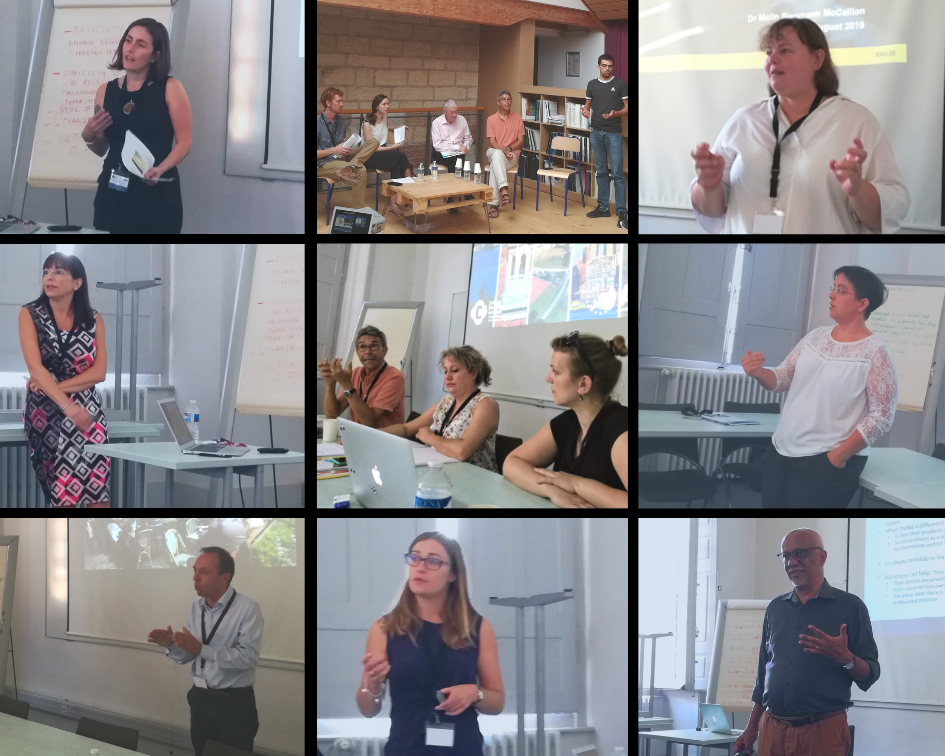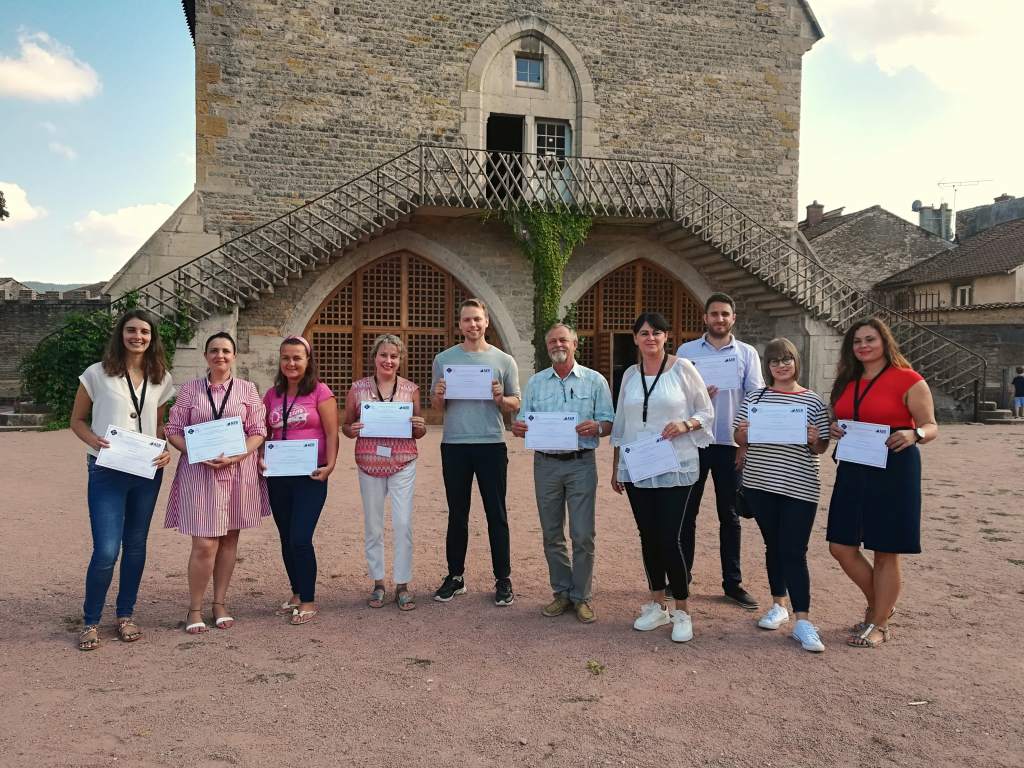 Share this!
Share this!In partnership with the European College of Cluny, AER successfully organised its pilot training seminar Cities and Regions: New Actors of Change in Europe. Eleven participants from Zagreb (HR), Šibenik-Knin (HR), Varaždin (HR), Västra Götaland (SE), Satu Mare (RO) and Bourgogne Franche Comté (FR) gathered for three full days of learning and exchanges.
Impactful interregional cooperation
This seminar was an opportunity to boost the capacity of regions to engage in impactful interregional cooperation, in order to encourage innovation and foster territorial resilience.
The state of regionalisation
Enrico Martial, Italy expert of the AER Observatory on Regionalisation, opened the seminar with a lecture on the state of regionalisation. The presentation focused on the role of regions in the construction of Europe and the different types of cooperation between regions.

Why Cluny?
The afternoon started off with a study visit of the Abbey of Cluny and the surroundings led by Jean-Luc Delpeuch co-founder of the European College of Cluny. The Abbey indeed was a central point of influence and knowledge in Europe in the medieval period and its history perfectly illustrates the concepts of territorial influence, long term heritage, international networks and flow of knowledge and practices.
From European collaboration to territorial networks
Next, a round table around forest protection, wood and engineering provided vivid examples on how international cooperation led to reinforced cooperation at the territorial level. Indeed, in the Cluny area, politicians, researchers and economic actors cooperate to promote innovation in the forestry sector, use resources in innovative ways, develop short supply chains and develop the territory’s assets.
Jean-Luc Delpeuch, Philippe Evans, Manager of the Fédération Européenne des Sites Clunisiens, and Guillaume Pot, Professor and researcher at ENSAM University presented their involvement in this multi-stakeholder cooperation around wood.
Frameworks & programmes for collaboration
On day two, Malin Stegmann-McCallion, Sweden expert of the AER Observatory on Regionalisation presented different frameworks and tools for cooperation and influence in Europe. She provided different examples on how regions organise, cooperate and influence and encouraged participants to reach out to different stakeholders and institutions of the European scene and further develop institutional cooperation for the benefit of their territory.
Anne Rouessard, EU funding expert and consultant at Europeanne, provided an overview of EU programmes and projects best suited for regions and cities, depending on their aims and capacities. She provided advice on how to increase the chances of getting projects accepted as well as examples of how cooperation and good communication enabled project partners to influence decision making at EU level on funding and programming.
In the afternoon, discussions and group work led to identifying the tools and frameworks, the participants are currently using and those which they could potentially use differently or develop further.
Experiences from Sardinia, Lower Austria & Bourgogne Franche Comté
The last day was dedicated to the exchange with professionals of cooperation and the definition of regional outreach strategies. Franziska Stadelmann, Deputy Head of Office of the Lower Austria office in Brussels shared the experience of her region and explained how they organise and collaborate with stakeholders both in Brussels and in the region in particular in the field of innovation. Maria Gabriella Fenu from the Agency for Active Labour Policies Sardinia (IT) showed how the international engagement of the agency has impact for stakeholders in Sardinia. Sardinia joined AER primarily to be part of the AER Eurodyssey programme, which provides unique opportunities or youth mobility and fits with the agency’s strategy. Magali Pausin from the European and International Service Burgundy Franche Comté (FR) explained how they work transversally in collaboration with other departments in the region to boost the impact of international cooperation.
Speakers shared elements of success, the barriers and enablers and a world café session generated fruitful conversations with the audience and between participants.
Co-development for problem solving & engagement
In the afternoon, a collaborative workshop animated by Georges Van Billoen, Management teacher at Arts et Métiers Grande École of technology, provided a methodology to capitalise on collective intelligence to solve problems and develop innovative solutions. This methodology is particularly efficient to engage diverse stakeholders in territories, an objective participants said they would like to improve.
Next steps
The European College of Cluny is launching a post-master degree Innovation, governance and territorial design in Europe which will include different seminars, which can be taken individually. Topics addressed include public policy design, circular and digital economy, smart specialisation strategies, and sustainable mobility. The next seminar on public policy design will take place from 7 to 9 October in Cluny It will be held in English and is open to all AER members. Registrations for this seminar are open until 20 September at [email protected].
The AER Training Seminar in Cluny was also the first step for the Civil Servants Exchange programme announced in September 2018 and coordinated by the President of Committee 3 Radimir Čačić, Varaždin (HR). The Civil Servants Exchange programme will allow civil servants to spend a month in a partner region to learn about new processes and practices. This programme is being developed in close collaboration with the Eurodyssey network and will start in 2020. It will also be further discussed at the Committee 3 plenary session taking place during the AER Autumn Committee Plenaries in Podčetrtek (SI) in September 2019.
For more information on the seminar and the speakers’ presentations, please visit the event webpage of the Training Seminar.
For more information on the Civil Servants Exchange Programme please contact Ms Larisa Križan Breljak.


